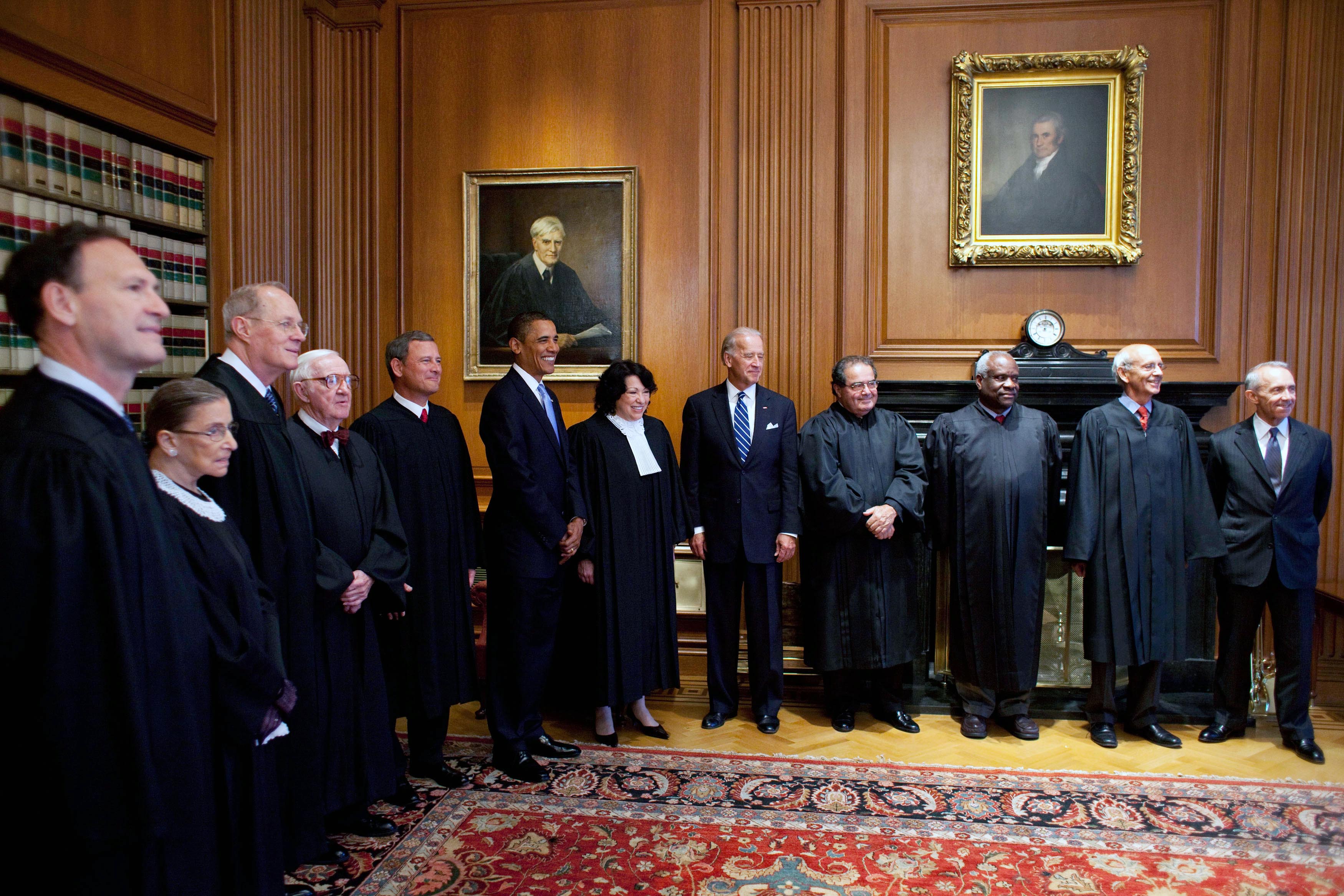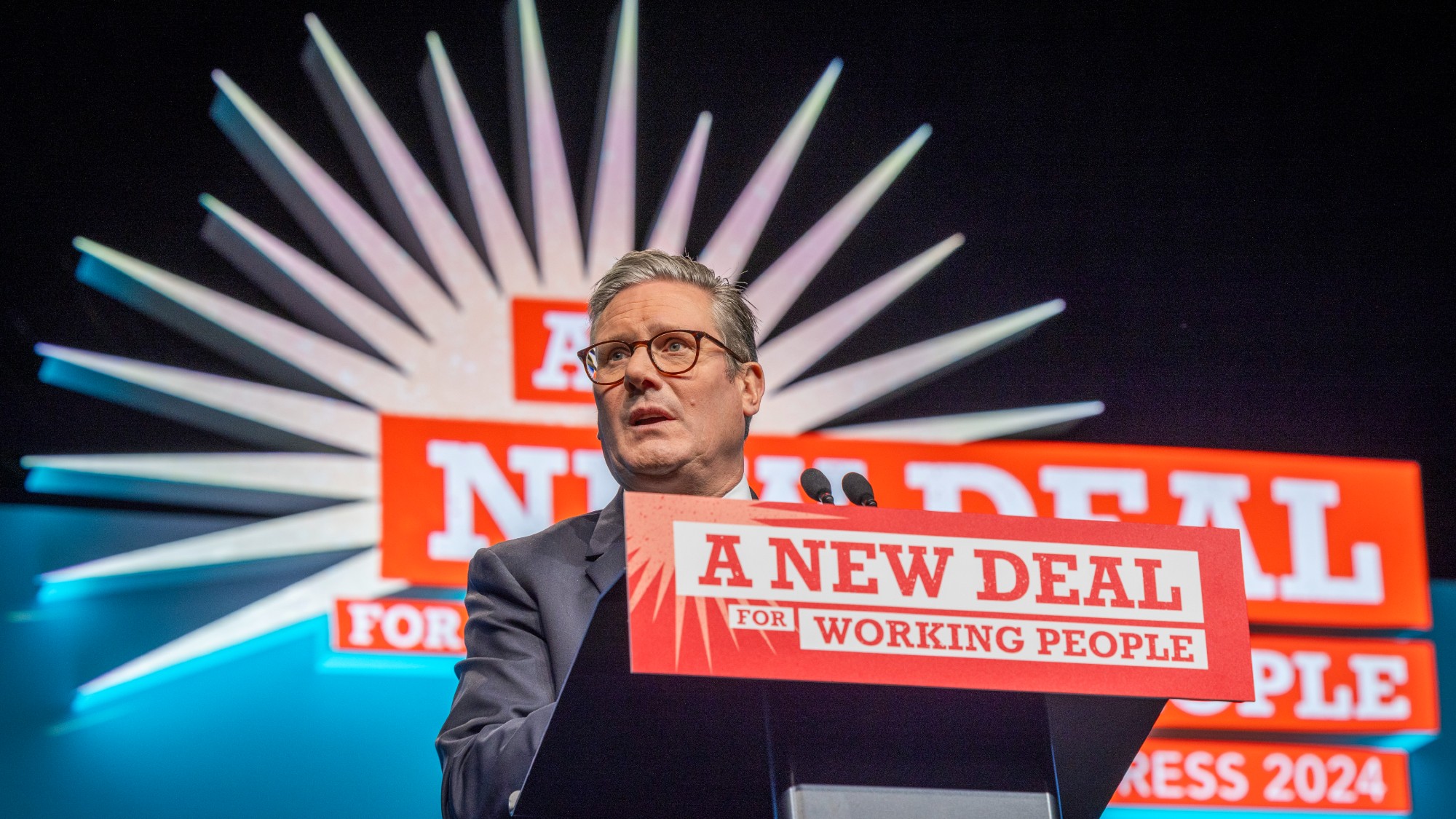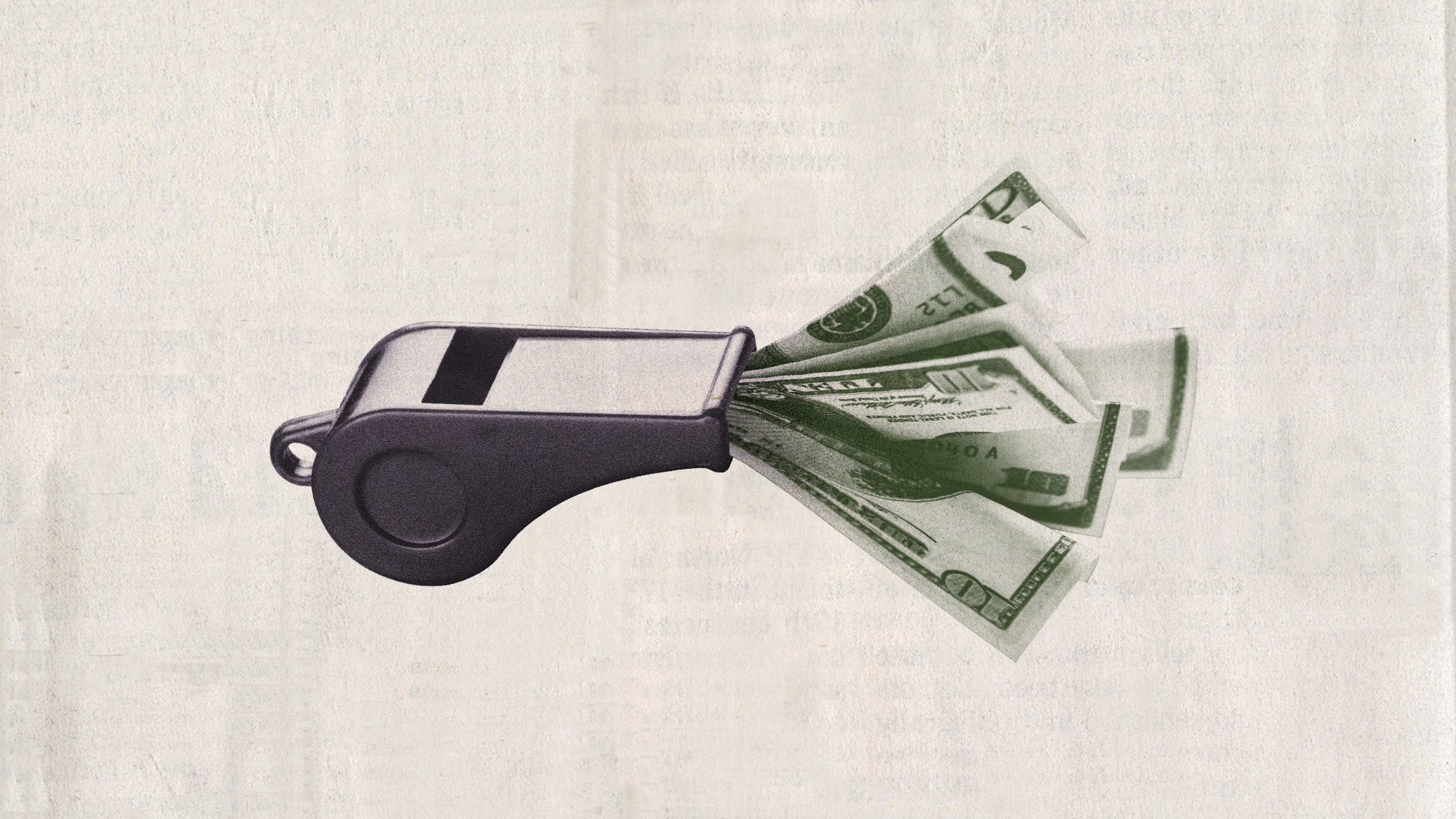America's great divide: The rule-followers vs. the do-gooders
A new way of diagnosing our polarized politics


Everyone knows our political system is more polarized than ever — or at least more polarized than it has been in a good long while. (The fall of 1860 was probably worse.) But do we recognize what really divides the parties? Sure, we like to think it's ideology. Big government versus small government, more regulation versus less regulation, "yay!" for same-sex marriage versus "boo!" for same-sex marriage. You get the idea.
At the risk of sounding like I'm doing a David Brooks impersonation, I'd like to suggest that there is another, perhaps more fundamental division at work in our political system.
Ladies and gentlemen: I give you the Rule Followers and Do Gooders.
The Week
Escape your echo chamber. Get the facts behind the news, plus analysis from multiple perspectives.

Sign up for The Week's Free Newsletters
From our morning news briefing to a weekly Good News Newsletter, get the best of The Week delivered directly to your inbox.
From our morning news briefing to a weekly Good News Newsletter, get the best of The Week delivered directly to your inbox.
The contrast may be most obvious on the Supreme Court.
On the one side, you have most of the Republican appointees. Despite their occasional clashes toward the end of the just-concluded term, the thing that usually unites Chief Justice John Roberts with Associate Justices Scalia, Kennedy, Thomas, and Alito is an insistence that the rules must be followed without regard for the practical consequences of doing so. That's the outlook of the Rule Followers in a nutshell.
The classic cases from recent history may be Citizens United v. FEC (2010) and McCutcheon v. FEC (2014), in which the court's conservatives shredded most of the nation's campaign finance regulations, holding that they violate the First Amendment. Because money is speech. Or something.
Never mind that the consequence of doing so (predictably) opened the door to a couple of billionaire brothers spending nearly $900 million to influence (directly and indirectly) the outcome of a presidential election — not to mention the handful of other super-rich donors who now exercise incalculably greater sway over the political system than your average American citizen who contributes no more than a modest campaign donation and a humble ballot on Election Day.
A free daily email with the biggest news stories of the day – and the best features from TheWeek.com
But really, what's a big old boost for oligarchy when constitutional principle is at stake?
Justice Kennedy authored the majority opinion in Citizen United, making him a quintessential Rule Follower — at least when it comes to campaign finance. On same-sex marriage, by contrast, Kennedy flips to become a quintessential Do Gooder, which can be defined as a willingness to pursue just about any means (regardless of the rules) to achieve a desired result.
As just about everyone recognizes, Kennedy's majority opinion in Obergefell v. Hodges (2015) (which was joined by all four of the court's Democratic appointees) was somewhat thin on constitutional justification. Instead of appealing to a strict scrutiny test under either the equal protection or due process clauses of the Fourteenth Amendment, Kennedy simply pointed out that marriage is a fundamental right, and then vaguely asserted that due process liberty interests and equal protection concerns trump other considerations, yielding a constitutional right to same-sex marriage.
That sounds an awful lot like a Do Gooder out to find a way — any way — of getting to the goal of homosexual equality. It's this ad hoc quality of the reasoning that, as much as anything else, drove Justice Scalia to apoplexy in his rant of a dissent. (Roberts objected to the same thing in his own much less insulting dissent.)
Scalia, you see, is a compulsive Rule Follower. In both constitutional and statutory cases, the rule is language: What, precisely, does the Constitution or the statute say? Scalia's obedience to the rule of the text is so obsessive that it put him on a collision course with the chief justice in King v. Burwell (2015), the statutory case in which Roberts and five of his colleagues upheld the Affordable Care Act. Roberts might have been willing to overturn campaign finance regulations based on a Rule Followers reading of the First Amendment in Citizens United and McCutcheon, but he wasn't willing to gut health care reform over a minor glitch in the language of a sloppily drafted federal law. The purpose or intent of the law's drafters could be inferred and used to correct the infelicitous language.
Roberts' willingness to temper pure Rule Following with a concern for practical consequences was, for Scalia (who excoriated the majority in another blistering dissent), a sign of wild-eyed judicial overreach. As far as Scalia was concerned, the passage of the statute in question literally made no sense, and so every aspect of health care reform connected to it should be torn up, no matter how many millions of people suffered as a result.
Lest you conclude that the war between the Rule Followers and the Do Gooders is limited to the nation's high court, consider the role it increasingly plays in the more democratically accountable branches of government.
Frustrated at the unwillingness of the Republican-controlled Congress to pass immigration reform and serious environmental regulations to combat climate change, President Obama has displayed his Do Gooder instincts in both areas. First he attempted to use executive authority to shield millions of illegal immigrants from deportation. Then he ordered the Environmental Protection Agency to regulate emissions from coal-fired power plants under the Clean Air Act. The president's goal in both cases was to Do Good, even if it meant bending the rules.
Or breaking them — which is what the Rule Followers in the judicial branch of government have accused the administration of doing.
Of course Republicans show themselves to be inveterate Rule Followers in plenty of other areas. What's the recurrent brinksmanship over the debt ceiling, after all, if not an effort by the House GOP to use a rule to impose draconian across-the-board federal spending cuts? (At the same time, presidents from both parties tend to act like consummate Do Gooders when they take control of the nation's foreign policy, ignoring aspects of international law, the Geneva Conventions, and arguably even the Bill of Rights when those rules prove inconvenient.)
All of which is unfortunate. Wise governance blends rule-following, reflection on the likely consequences of both action and inaction, and the judgment and flexibility to make the right choice among the available options in a particular circumstance. The parties' increasing focus on one or the other approach — following the rules regardless of the consequences or aiming for good consequences regardless of the rules — is bound to make a mess of things, especially over the long term.
In this respect at least, the centrists have the right idea.
Damon Linker is a senior correspondent at TheWeek.com. He is also a former contributing editor at The New Republic and the author of The Theocons and The Religious Test.
-
 Australia’s teens brace for social media ban
Australia’s teens brace for social media banIn The Spotlight Under-16s will be banned from having accounts on major platforms
-
 Labour’s dilemma on workers’ rights
Labour’s dilemma on workers’ rightsThe Explainer TUC says Employment Rights Bill is ‘essential to better quality, more secure jobs’ but critics warn of impact on economic growth
-
 Coaches’ salary buyouts are generating questions for colleges
Coaches’ salary buyouts are generating questions for collegesUnder the Radar ‘The math doesn’t seem to math,’ one expert said
-
 Has Zohran Mamdani shown the Democrats how to win again?
Has Zohran Mamdani shown the Democrats how to win again?Today’s Big Question New York City mayoral election touted as victory for left-wing populists but moderate centrist wins elsewhere present more complex path for Democratic Party
-
 Millions turn out for anti-Trump ‘No Kings’ rallies
Millions turn out for anti-Trump ‘No Kings’ ralliesSpeed Read An estimated 7 million people participated, 2 million more than at the first ‘No Kings’ protest in June
-
 Ghislaine Maxwell: angling for a Trump pardon
Ghislaine Maxwell: angling for a Trump pardonTalking Point Convicted sex trafficker's testimony could shed new light on president's links to Jeffrey Epstein
-
 The last words and final moments of 40 presidents
The last words and final moments of 40 presidentsThe Explainer Some are eloquent quotes worthy of the holders of the highest office in the nation, and others... aren't
-
 The JFK files: the truth at last?
The JFK files: the truth at last?In The Spotlight More than 64,000 previously classified documents relating the 1963 assassination of John F. Kennedy have been released by the Trump administration
-
 'Seriously, not literally': how should the world take Donald Trump?
'Seriously, not literally': how should the world take Donald Trump?Today's big question White House rhetoric and reality look likely to become increasingly blurred
-
 Will Trump's 'madman' strategy pay off?
Will Trump's 'madman' strategy pay off?Today's Big Question Incoming US president likes to seem unpredictable but, this time round, world leaders could be wise to his playbook
-
 Democrats vs. Republicans: who are US billionaires backing?
Democrats vs. Republicans: who are US billionaires backing?The Explainer Younger tech titans join 'boys' club throwing money and support' behind President Trump, while older plutocrats quietly rebuke new administration
